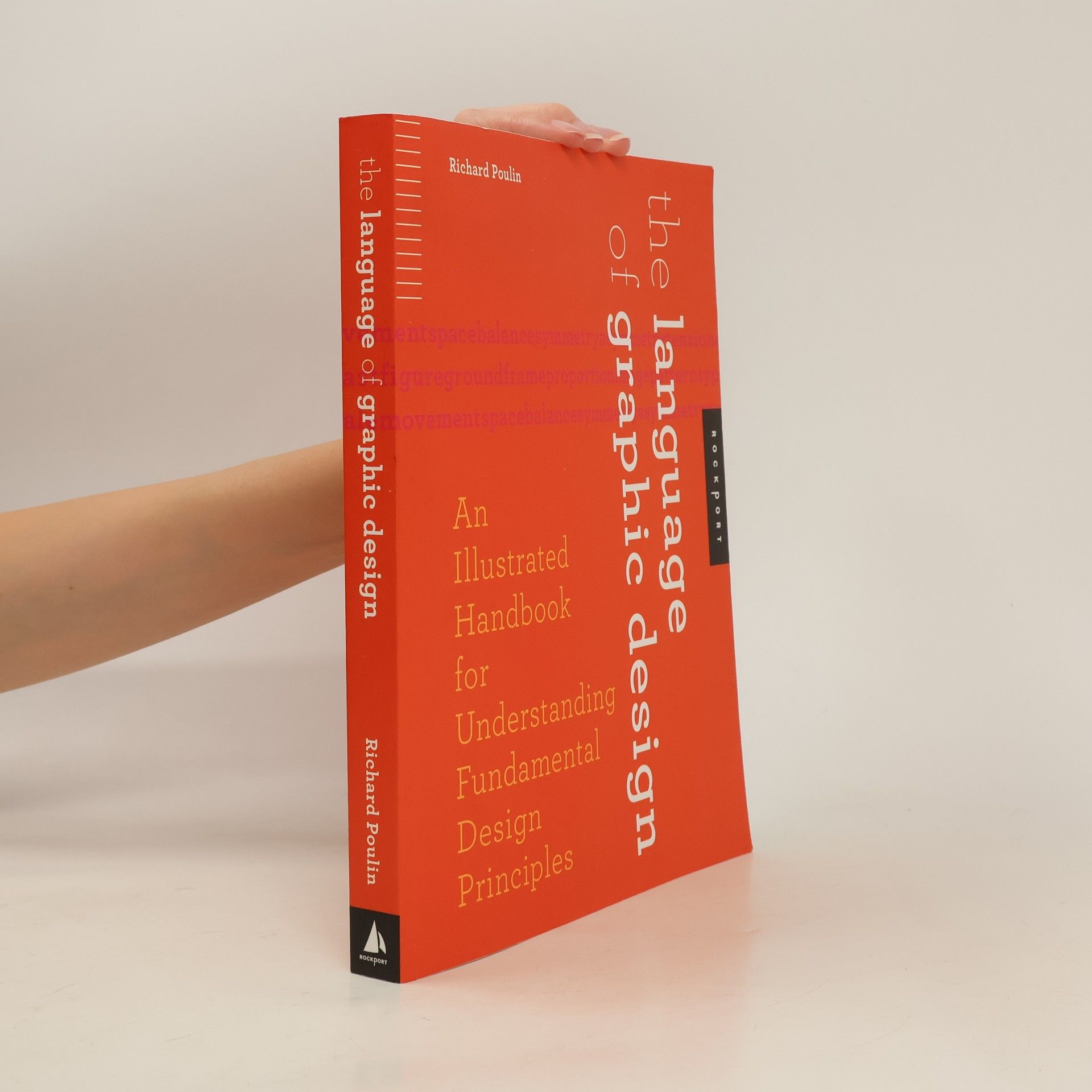History of Environmental Graphics
- 224 pages
- 8 hours of reading
Richard Poulin is a distinguished designer and author focused on visual communication and graphic design. His work for prominent institutions like museums, universities, and cultural centers demonstrates a profound understanding of the connection between design and architecture. Poulin's books, often exploring the history and principles of graphic design, are lauded for their depth and visual appeal. His teaching and lectures further contribute to the development and dissemination of knowledge in the design field.




'The Language of Graphic Design' provides graphic design students and practitioners with an in-depth understanding of the fundamental elements and principles of their language, what they are, why they are important and how to use them effectively.
Základní učebnice zásad grafického designu, z níž lze znovu a znovu čerpat stěžejní informace, inspiraci i praktické rady. Otiskuje díla řady vysoce úspěšných a renomovaných tvůrců z celého světa a líčí, jak při své práci používají elementy a principy grafického designu. Pohledem na grafické práce nadaných studentů i profesionálních designérů předkládá názorné, snadno zapamatovatelné a inspirativní návody a nástroje, užitečné pro začínající studenty designu, mladé profesionály v počátcích kariéry i dlouholeté zkušené grafiky. Součástí každé z dvaceti šesti kapitol, malé pocty anglické abecedě, je rozbor některého z klíčových historických děl grafického designu, ilustrující probíraný prvek či princip a jeho význam. Z kapitol jako Bod, Linie, Plocha, Světlo, Barva, Rovnováha, Kontrast nebo Proporce se skládá celý grafický slovník, s jehož pomocí lze promlouvat obrazem a vkládat do děl vizuální komunikace bohaté významy.
For anyone trying to communicate in a new language, one has to first gain a complete understanding of its fundamentals; the ABC’s of that language—definitions, functions, and usage. The Language of Graphic Design provides graphic design students and practitioners with an in-depth understanding of the fundamental elements and principles of their language—graphic design—what they are, why they are important, and how to use them effectively. Organized by the building blocks of the graphic design language, this reference includes work by some of the most successful and renowned practitioners from around the world and how they have applied these fundamental principles to their work. By examining both student and professional work, this comprehensive handbook is a more meaningful, memorable, and inspiring reference tool for novice design students, as well as young designers starting their careers. To understand visual communications one has to first understand by seeing. To develop this discipline or visual sense is similar to learning a new language with its own unique alphabet, lexicon (vocabulary), and syntax (sentence structure). This book provides clear, concise information that will enhance visual literacy, while using dynamic, memorable visual references to inspire and reinforce the skill of seeing.